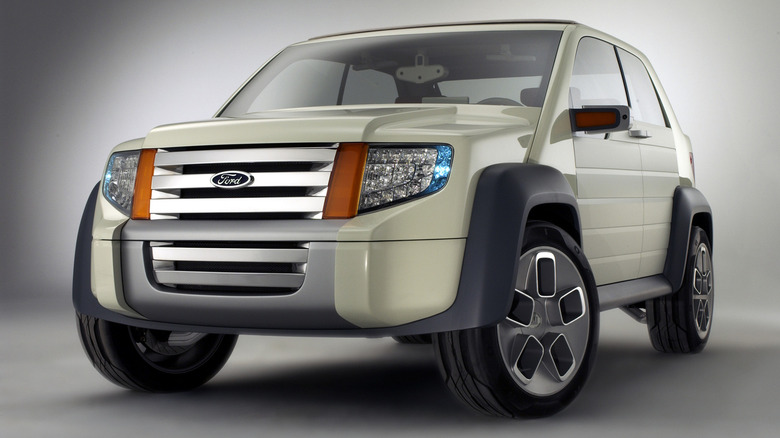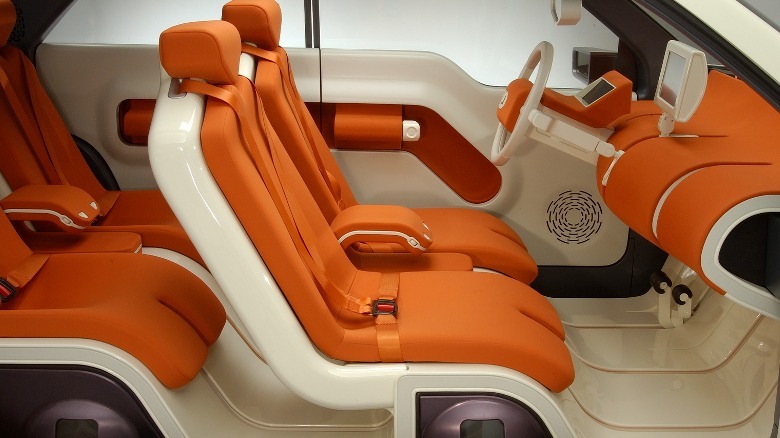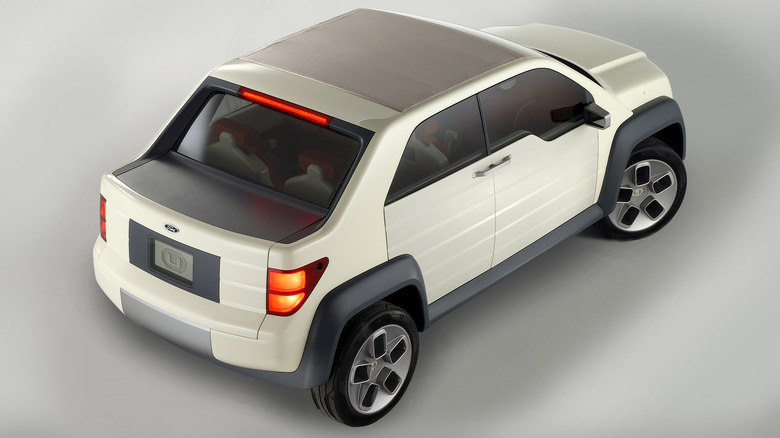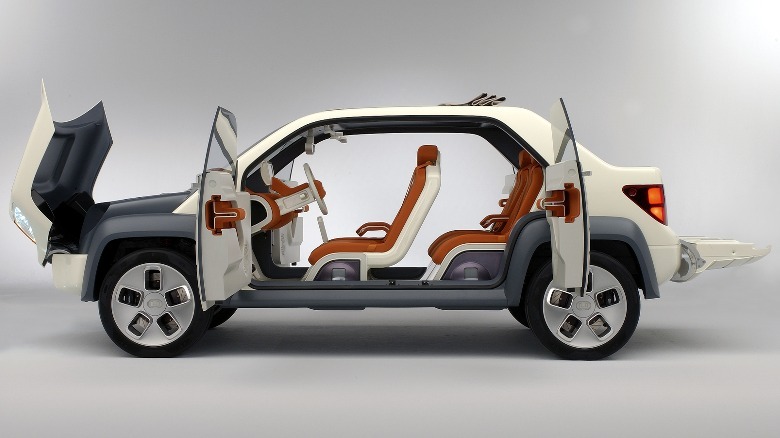The Futuristic Ford Concept Car That Ran On Hydrogen Fuel
Hydrogen power has proven to be a promising automotive technology in the past. Hydrogen is plentiful, and the only byproduct of most commercial hydrogen powertrains would be distilled water. Honda has used the technology in its Honda Clarity, albeit in limited numbers. Around two decades ago, Ford thought it would take a crack at conjuring up its own hydrogen-fueled car. It was a concept that went by the name "Model U."
The concept was first debuted at the 2003 Detroit Auto Show, per Car and Driver. Although there isn't a lot of information as to how much horsepower it would generate or projected price, it was supposed to be powered by a hydrogen-fueled, supercharged four-cylinder, and be constructed out of all manner of recycled and environmentally friendly materials.
Reportedly, it also had a modular bed system that allowed for more storage room, something that GMC has used in the new EV Sierra. The interior was reportedly supposed to be modular as well, with allowances for a DVD player (this was 2003, after all) and a computer.
Ford's quirky hydrogen concept
From the outside, the styling characteristics are very Ford-like, while simultaneously being completely alien. The front grille and headlight assembly actually bears a striking resemblance to later model year Ford Explorers and F-150s, although the size appears to be more reminiscent of the Ford Escape.
Similarly, the small bed and overall environmentally friendly mini-truck vibe put off by the Model U is at least partially seen in today's Maverick, although without the bonus of hydrogen power.
The interior looks like somewhat like a cross between a doctor's office from 1975, and the seating of a passenger plane, but that could be forgiven since it was new and hip a full 20 years ago. The rear-hinged doors and modular interior would have made it a competent beach cruiser, not unlike the Honda Element.
However, it may have been too quirky for a mass market. Additionally, hydrogen is still in its relative infancy 20 years later, so it's doubtful Ford would have been able to encourage any large scale adoption. Ford would try again in 2007 with the Airstream Concept, though it suffered a similar outcome to the Model U.
That said, it seems that Ford has not abandoned the technology entirely. Earlier this year, Ford launched a research project into further developments of hydrogen fuel cell technology via a fleet of hydrogen-powered Transit vans in the United Kingdom.



